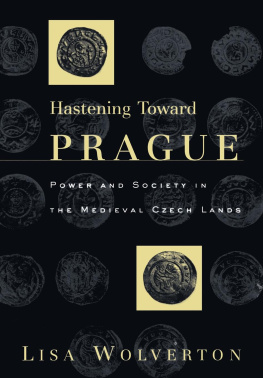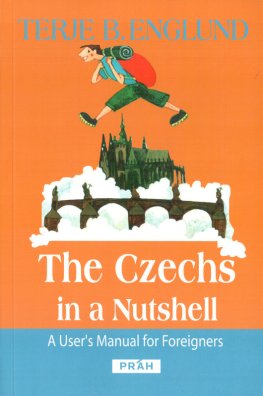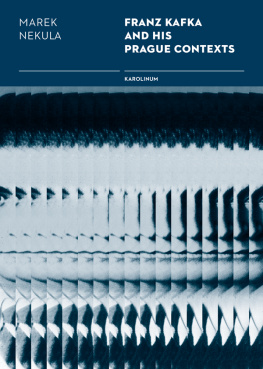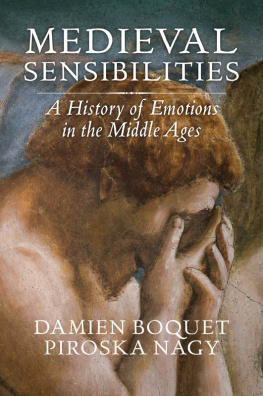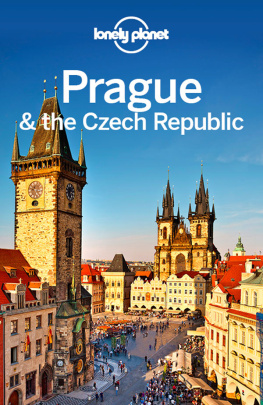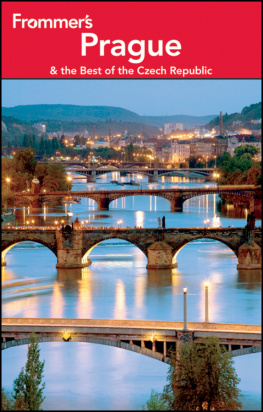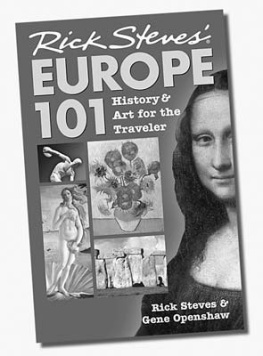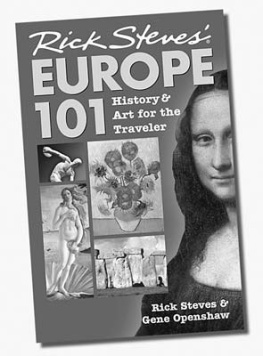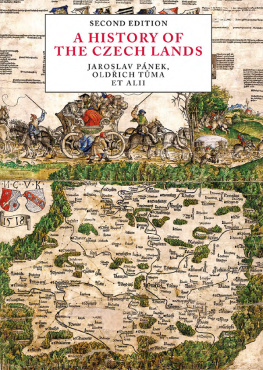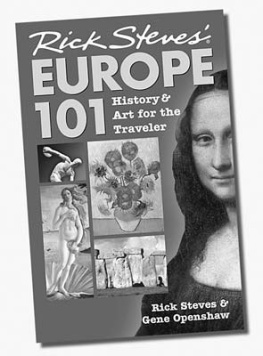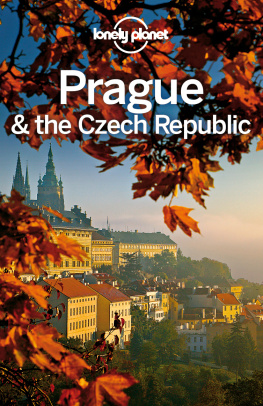Contents
Page List
Guide

HASTENING TOWARD PRAGUE
THE MIDDLE AGES SERIES
Ruth Mazo Karras, Series Editor
Edward Peters, Founding Editor
A complete list of books in the series
is available from the publisher.
HASTENING TOWARD PRAGUE
Power and Society in the Medieval Czech Lands
LISA WOLVERTON

UNIVERSITY OF PENNSYLVANIA PRESS
Philadelphia
Copyright 2001 University of Pennsylvania Press
All rights reserved
Printed in the United States of America on acid-free paper
10 9 8 7 6 5 4 3 2 1
Published by
University of Pennsylvania Press
Philadelphia, Pennsylvania 19104-4011
Library of Congress Cataloging-in-Publication Data
Wolverton, Lisa.
Hastening toward Prague : power and society in the medieval Czech lands / Lisa Wolverton.
p. cm. (Middle Ages series)
Includes bibliographical references and index.
ISBN 0-8122-3613-0 (cloth : alk. paper)
1. Bohemia (Czech Republic)Politics and government12th century. 2. Bohemia (Czech Republic)Kings and rulers. 3. Power (Social sciences)Czech RepublicBohemia. 4. Pemyslid dynasty. 5. Cosmas, of Prague, 1045?1125. I. Title. II. Series.
DB2082.5.W65 2001 |
943.716223dc21 | 2001027490 |
To my parents and my husband
CONTENTS
MAPS, FIGURES, AND TABLES
MAPS
FIGURES
TABLES
Duke Vladislav commended the city to his brother, Theobald, with some very fierce warriors to protect the castle and the princely throne, a certain stone one, which even now stands in the castles center; for its sake, not only now but from of old, many thousands of warriors have rushed to war.
Vincent of Prague
INTRODUCTION
This book has two purposes: to study society and politics in the Czech Lands between roughly 1050 and 1200, and to reexamine the nature of power in the High Middle Ages generally. In the former guise, it offers a thorough revision of the current scholarly literature on Bohemia and Moravia; simultaneously, it introduces medievalists outside the Czech Republic to a little-known but integral area of medieval Catholic Europe. As an analysis of power per se, it tracks the logic of dynamism and evolution within largely unchanging political institutions and social structures, revealing the values and strategies that sustained the Czech Lands as a political community. The components of its political and social landscape were stark, simple, and durable: a throne, located in Prague Castle; the duke and the dynasty who dominated it; a society of property owners undifferentiated by hereditary strata; the incipient Roman church; and recognized natural boundaries. But their interplay was fluid and complex, and bespeaks the maturity, sophistication, and cohesion of a flourishing Czech polity. Action and imagination in the Czech Lands presumed, and at the same time shaped, a coherent political community, insulated but not isolated from the rest of medieval Christendom and transcending particular individuals or institutions. All this belies Bohemias, and Moravias, implicit status as a frontier region on the fringe of western Europe, while providing an extraordinary opportunity to explore the exercise and logic of power, universal issues observed here operating in a specifically medieval context.
At the outset this project asked several elemental questions: What powers did the duke of Bohemia possess, what was their basis, how were they effected, and how far did they extend? Consideration of the dukes power raised a number of corollary issues: What was the status of the Christian church and its leaders? What was the nature of the dukes relationship to the German emperor? Were conditions substantially different in Moravia compared to Bohemia? These historical issues, essentially institutional in character, together with their associated and subordinated questions, still provide the skeletal organization of this book. Early on, however, investigation into ducal power showed that it would be impossible to imagine it, in theory or in practice, without reference to the Czech freemen. They were the dukes subjects. But they were no less his partners, his warriors, and, in very concrete ways, a significant check upon his power. The goal of the project shifted then to consider not only the foundations and exercise of ducal lordship, but the form and progress of resistance to it. Concurrently, basic issues of context, matters of social structure, law, economics, and religious life, invariably involved the duke, and further disclosed the deep interconnection between ruler and ruled. Over time, and under close scrutiny, a linchpin emerged for understanding the structure and development of Czech social and political life in this period: the interdependence of the duke of Bohemia and the freemen, the implicit tension between them, and the resulting balance of power.
Although the Czech Lands were undoubtedly governed by a single ruler of great might, wealth, and prestige, the concept of community proves pivotal to the study of his power. The duke of Bohemia stood well above and was yet intimately linked to those he governed. He was responsibleand responsiveto his subjects, even as he dominated them. For their part, the freemen maintained close ties to the duke and to Prague, and assured that the duke governed according to their interests by threatening or carrying out deposition and revolt. While the various constellations of freemen, collegial and contentious, shifted constantly, as did the specifics of their concerns, designs, and allegiances, the goal was the same in every instance, namely, the dukes throne. The Czechs were not always in harmony with their duke or with each other, but whether in uniting or in struggling to determine the occupant of the throne, laymen of diverse status were de facto empowered. Power in the Czech Lands must, therefore, be seen to reside both in the dukes throne and in the community of those subject to it.
Themes of power and community together govern the book in its entirety. Power shapes society from its foundations, and is in turn shaped by it. In the Czech case, issues of power dominate all the sources, of whatever medium or genre. Power, vigorously wielded or tacitly acknowledged, is here conceived broadly, as reflected or enshrined in institutions and social structures, and as abstracted in office or ideology. Community is more elusive, but entails coherence among the inhabitants of the Czech Lands, both in deed and in conception, and their active involvement with one another and engagement with the governing authority. Power pervaded society, not only in its divisions, but in the way each related to the other in a constantly moving dynamic of resistance to, and reassertion of, might. Coming to terms with political community, in turn, requires attention to structures that fostered shared identity, developments which tested or sundered it, and symbols and ideals of unity and of joint action. It is precisely by grounding abstract notions of identity and community in the dynamics of the actual exercise of and resistance to power that we begin to understand their influence. Though their exact relationship is multi-faceted, this book will ultimately argue, power and political community are inseparable.
The key to both power and community, and the relationship between them, this book shows, lies in analyzing the course of events, the actions of individuals, their aims, methods, and consequences. The progress of politics must be understood primarily as a continuous chain of strategies and counter-strategies. Their particulars serve as much to shape, or constrain, ducal lordship and Czech social structure as they were framed by them. Likewise, symbols of rulership, the cult of saints, and relations with neighboring rulers are all viewed as resources mobilized (sometimes without success) toward particular ends. It was, moreover, the dynamics of power in action that constituted the driving force of change. While the fundamentals of ducal lordship remained unaltered from the eleventh century well into the thirteenth, and individual laymen were only beginning to transform the social structure at the end of the twelfth, the world of the 1070s was quite unlike that of the 1120s, 1150s, or 1180s. And while outside influences may be credited with certain developments, especially in ecclesiastical affairs and imperial politics, the internal political dynamic conditioned their reception and appropriation as they were made to serve strategic needs, interests, and goals specific to Czech society. To decipher the logic driving the interplay between duke and freemen in the Czech Lands, we must reexamine events in the standard historical narrative in relation to underlying patterns.

